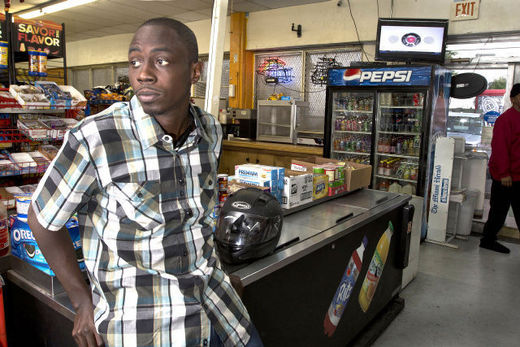
© Tanya Patrice/FlickrSabra hummus
When tax time rolls around each year, every American citizen gives $21.59 in military aid to Israel,
according to the U.S. Campaign to End the Occupation. But that's not the only way American citizens contribute to the Israeli military, which has occupied Palestinian land for 46 years, and the West Bank settlement project that accompanies the occupation.
Consumers may not know it, but buying products like Sabra hummus and Sodastream helps fuel Israel's military control over Palestinians. Some companies have factories located in one of the 125 officially recognized settlements in occupied Palestine, which are illegal under international law. Other companies contribute to the maintenance of an occupation through cooperation with the Israel Defense Forces (IDF), whose main goal is to protect illegal settlements and exercise dominion over the lives of millions of Palestinians. Buying these products gives profits to companies who exploit Palestinian land and resources.
Here are six consumer products and companies that help keep the Israeli occupation rolling along. All of them have been targeted by the boycott, divestment and sanctions (BDS) movement, a Palestinian-led international campaign to isolate Israel for its violations of international law. BDS groups have called on consumers to boycott these products as a way of sending an economic signal to Israel.
1. SodastreamThis soda-making company is ubiquitous nowadays. Sodastream products, which turn water into sparkling water and other flavored drinks, have been incredibly successful in the U.S.
According to CNN, sales of their products have skyrocketed, with the company bringing in $436 million in 2012, a 51% increase from the previous year. The company, which was bought by an Israeli company that eventually sold it to a private equity firm, has touted itself an environmentally friendly company
But the less-progressive side of Sodastream lies in the location of its factory. The main facility where Sodastream products are made is in the industrial settlement area of Mishor Adumim, which is right outside Jerusalem and even closer to the mega-settlement of Ma'ale Adumim. Mishor Adumim serves Ma'ale Adumim by providing the settlement with employment for Israelis and business for nearby Israeli companies.
Sodastream claims it's not violating international law by operating in a settlement because its factory benefits the local population of Palestinians. It's true that Sodastream employs Palestinian laborers. But
according to Who Profits?, an Israeli-based organization that tracks occupation profiteers, "the workers in the SodaStream factory suffer from harsh working conditions." Palestinian workers are seen as a cheap labor force to be exploited, and have complained that when they protest for better wages, they are fired.
By bolstering Ma'ale Adumin, Sodastream's factory in Mishor Adumim contributes to the death of any chance for a viable and contiguous Palestinian state. Ma'ale Adumim was strategically built as a settlement that cuts off easy access between Ramallah and Bethlehem, two important cities in the West Bank.
For those who love Sodastream but are looking for an alternative, have no fear. A number of similar products allow consumers to make their own bubbly water without giving money to a company operating on occupied land.
The alternatives include Cuisinart's beverage maker and a company named SodaSparkle.












Comment: Coping with the daily consequences of poverty is an all-consuming activity, with long-term negative effects on cognitive ability. Rather convenient for an elite class who wished to hold power indefinitely. One might even think it's a deliberately contrived situation.This is your brain on poverty: Sanders and Warren probe insidious consequences of being poor
Poverty Goes Straight to the Brain
Growing up poor and stressed impacts brain function as an adult
Poverty as a childhood disease
America's Descent into Poverty